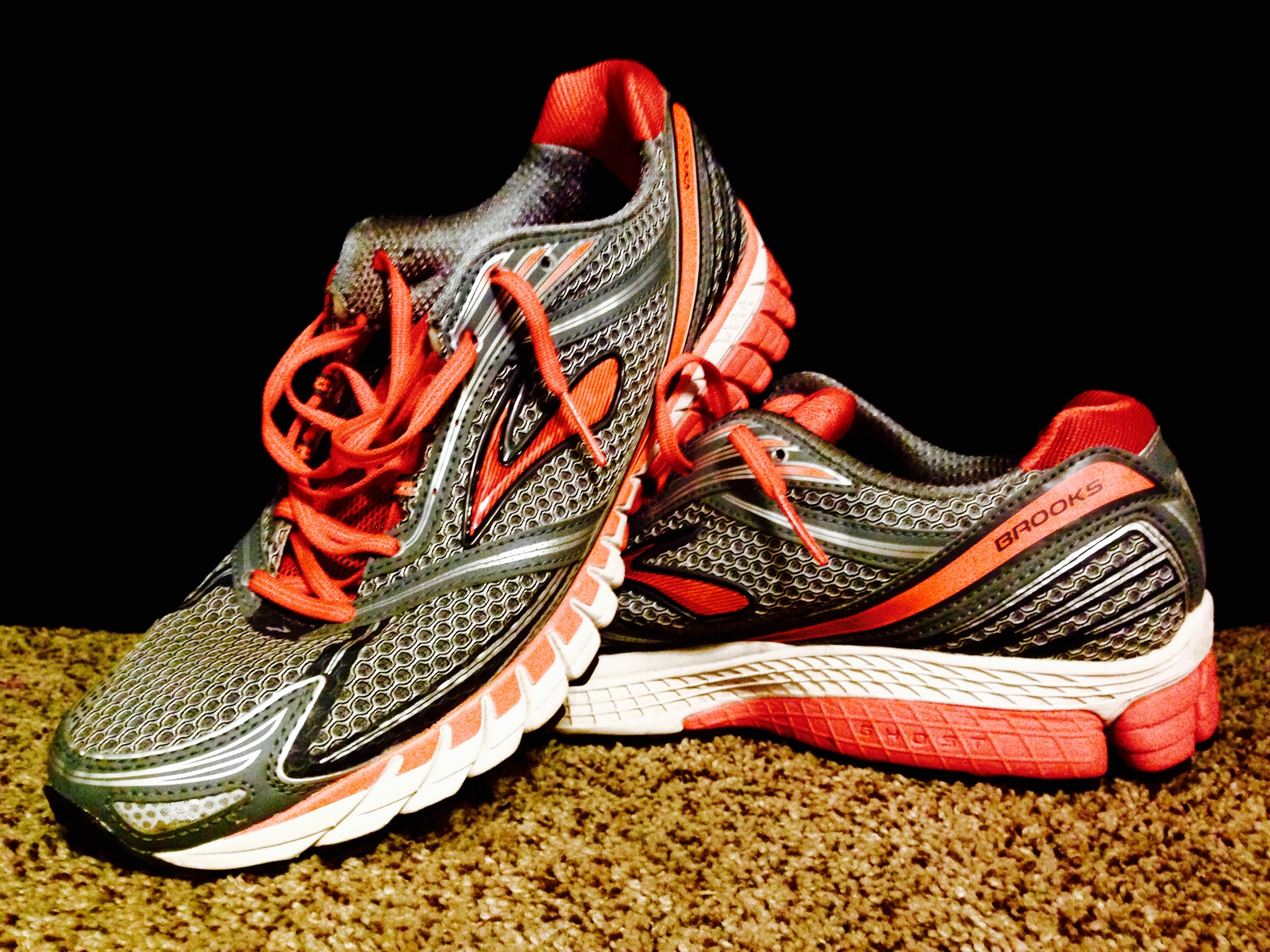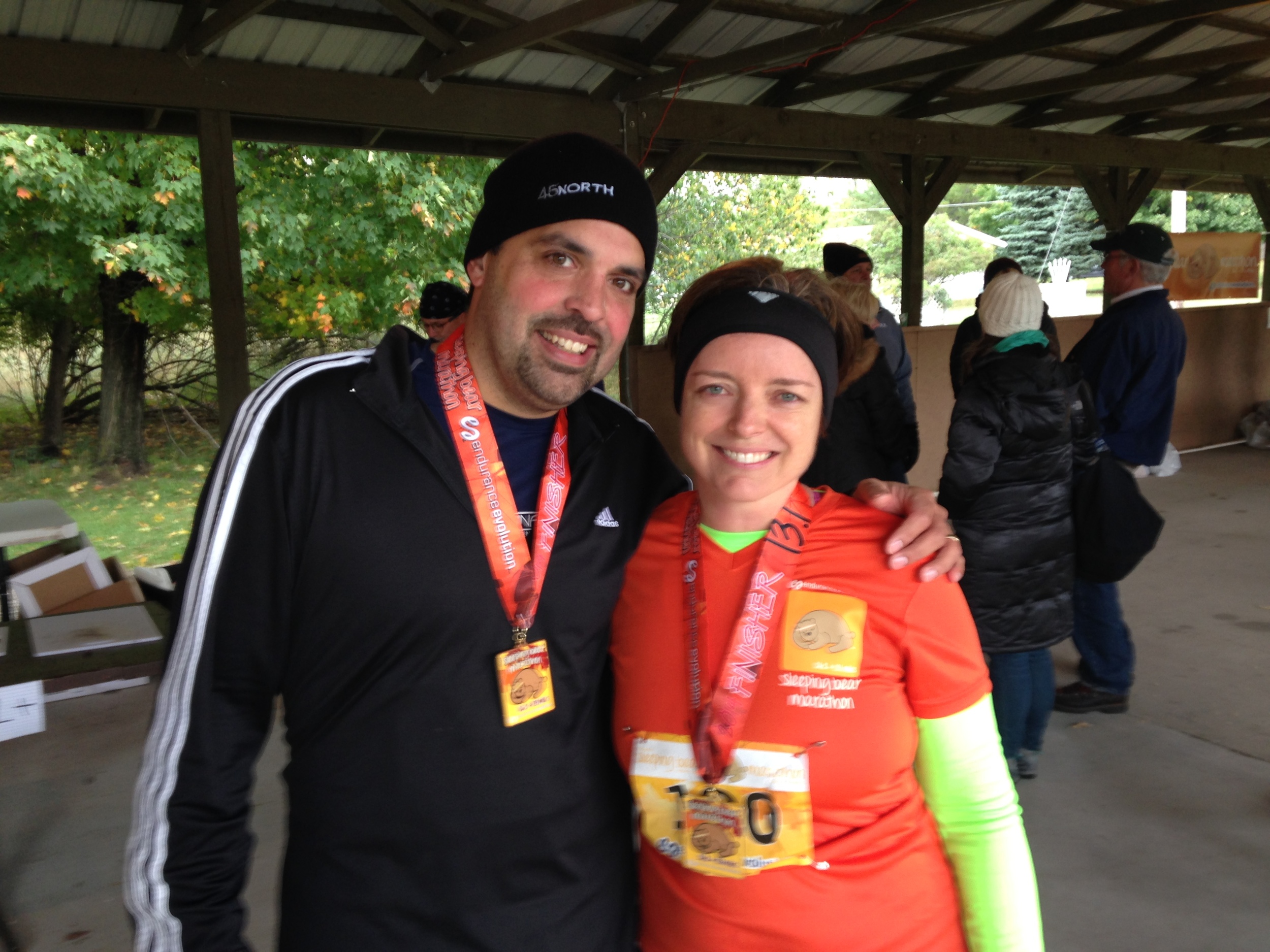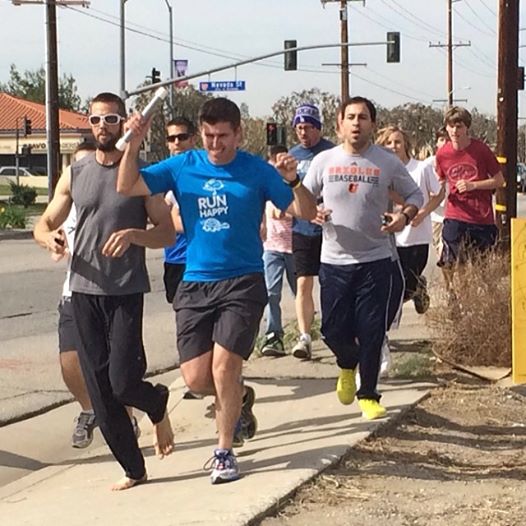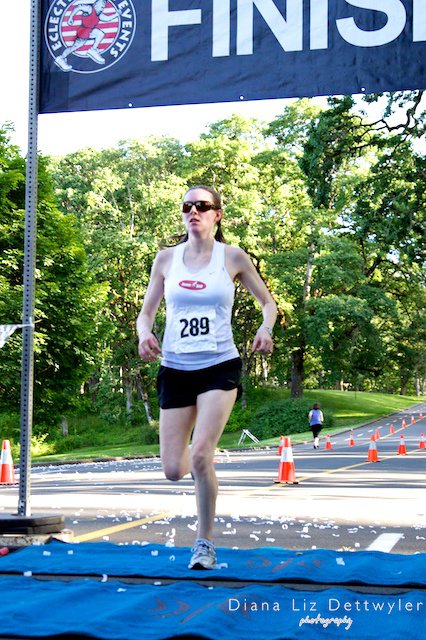Lessons from a half-marathon: Miles 10-12
joeacast
Every long-distance runner I’ve talked to knows what’s next. Even some top level runners who helped me prepare for the race told me to be aware of it. Facing it is daunting, yet it’s so common that it’s a regular euphemism used in sports, business, relationships and anything that requires any amount of consistent work. What is it? It is the wall. And I hit mine squarely between miles 10 and 11.
As Traci and I came off the hard work of miles 7-9, we received a little energy boost from the mile 9 aid station that featured grapes, donut holes and water. I ate two grapes, 1/2 a donut hole and drank a small cup of water while running thru the challenges leading up to miles 10-12. The challenges offered in mils 7-9, however, were nothing compared to the wall we hit between miles 10-11.
After the aid station, we continued up the steepest hill of the course thru mile 10 and into mile 11. And when we finally crested the top and started a nice downhill portion of the race, a small change made a big impact on our capacity to reach the end with umph. What change? Something as simple as switching sides of the road.
Up to that point in the race, we had been running on the left side of the road. That’s pretty natural since that’s how runners train and how most courses are set up. In doing this, my body had pretty well adjusted to running on the edge of the road with the crown of the road (the high side) under my right foot , and the lower part beneath my left. At times the crown was pretty pronounced, at other times the edge of the road was almost level. Either way, I’m pretty well-adjusted to running in that situation.
In-between miles 10 and 11 though, we were pushed back to the right side of the road, and found ourselves in a different position, with the left foot now falling higher than the right foot. Honestly, it doesn’t seem like that big of change even now as I write this, and at the time it didn’t even cross my mind as we were moving from the left side, to the right side, of the road.
Just a minute after crossing the road, my left foot was screaming in pain; not just discomfort, but genuine pain as the road had changed underfoot. I didn’t hear any other runners mention this, so maybe our inexperience was part of the problem, but whatever the reason, the switch from the left side of the road, to the right side of the road, had a significant impact on my running state of mind.
Traci was feeling it too, so as we crossed the 11-mile-marker and started out on our 12th mile, the challenges were growing stronger. We had most definitely, hit our wall.
When we finished the last of the hills and were mid-way thru mile 12, we found ourselves “jogging” at a pretty slow pace. In fact, we decided a brisk walk was faster than our current jog, so we walked for about a 1/4 mile. Since neither of us had ever run more than 8.6 miles prior to this race, we recognized we had already run 4 miles further than ever before. We both wanted to end by running thru the finish line, so this brief respite before the final 1/4 mile was very necessary.
Our strength was zapped. Our emotions were running high. Our resolve was being tested.
I learned a lot “at the wall” on Sunday. Here are three of those lessons:
- You must know why you are running in order to keep running when you hit the wall. For me and Traci, the why of this race has always been the same: it’s a metaphor for the place we are in life. The training, the injuries, the set-backs and the race itself, all of it offers a great word picture of where we are in the journey God has placed us on. We were running to vividly remind ourselves to hold the course in life, to stay on the path that God has provided and to keep pressing on even when the necessary strength is hard to find. We ran this race, because we are running the race as we live out God’s purpose for our lives.
- Never run alone. The wall is formidable, and your resolve is not enough. Sure, you will hit some lesser walls you can manage on your own, but I promise, your journey in life will bring you face-to-face with challenges that you cannot conquer without help. God didn’t place you on this earth for you to live the life of a Lone Ranger, but rather, for you to live life in the richness and depth of a community of people living out their God-designed lives together. We were created for caravans. I am confident I would not have even entered the race had I not been running with Traci. When our race was over, she told me several times she wouldn’t have finished had it not been for me. Together we ran. Together we faced the wall. Together we broke thru that barrier and are reminded of what great rewards God has for us if we’ll do the same with the barriers we face in this life!
- Don’t ever stop. We slowed down. We changed our pace as we moved from a plotting jog to a brisk walk, but we never stopped our forward progress. Press on when you hit the wall, because if you stop, it’s almost impossible to regain your forward momentum. Walk. Hobble. Crawl. Just don’t ever stop.
What about you? Are you at a wall right now? Has your forward momentum been stunted by a giant barrier? Are you contemplating giving up? Are you going to stop? As you pursue your God-sized dreams, you will come face-to-face with dream-crushing walls that want to discourage you to the stopping point. Let me encourage you to press on. Let me urge you to continue the walk of faith, and to keep moving on the race God has given you. If God has given you the dream, He will give you the means to fulfill it, just don’t ever stop!
The Overboard Life is lived in faith, believing that running the race God has given us is better than any race we could run ourselves. It’s a life that must be lived in faith, using all that we have and are, while trusting fully in all that He is and can supply.
Go ahead and take the plunge, life is always better on the water!







